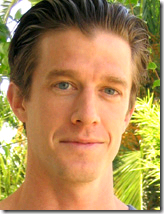When I interview a runner, coach or author at the top of his field it’s like I’m talking to Neo.
They don’t just know they’re in the Matrix, they can see the Matrix.
Understanding the intricacies of training, racing, and the physiology and biomechanics of running is daunting. Nobody knows it all, but there are some folks who just get it.
A few months ago I coached a small group of runners who were particularly injury-prone. In addition to intensive 1-on-1 coaching where I was always on call, the runners received weekly coaching lessons, exclusive videos of all new strength routines, and a training plan built to their fitness level and injury.
But the most helpful part of the program was the Expert Interview series. Every week, members submitted questions for a guest interviewee. At the end of the program, I spoke with five coaches, scientists, and authors who I consider my mentors in the sport of distance running.
Where else could recreational runners have the opportunity to ask the top running experts in the world their specific questions about their personal training?
It was a big opportunity and one of the most interesting things I’ve ever done. Here’s what Brian thought:
This program has given me exactly the result I was looking for. I have been struggling with chronic calf strains for twenty years and I am finally dealing with the source of the problem! This program has supplied a huge wealth of knowledge on running injury free and how to put it into practice. Jason’s interviews with elite runners and running coaches were super helpful. I feel like my running future at age 58 is incredibly bright.
Two of the guest interviewees included:
Alex Hutchinson has a PhD in Physics and is a columnist for The New York Times, Popular Mechanics, and The Globe and Mail. He also writes the popular Sweat Science blog on the Runner’s World website.
Alex is also the author of the book Which Comes First, Cardio or Weights? that answers over 100 common running, fitness, health, and nutrition questions.
Matt Fitzgerald is arguably the endurance world’s most prolific author, with over 15 books on the brain’s influence on running performance, nutrition for runners, and Ironman triathlon. He was formerly a senior editor at Competitor Magazine and Active.com.
His latest book is The New Rules of Marathon and Half Marathon Nutrition: A Cutting-Edge Plan to Fuel Your Body Beyond “the Wall.”
Now that the program has ended, I’m going to show you some of the lessons I learned from these experts and how you can apply them to your running to get faster and prevent more running injuries.
These exclusive interviews aren’t available anywhere else. If you’d like to be the first to be notified when they’re available, just sign up here (and I’ll also send you two presentations on injury prevention).
Alex Hutchinson and “The Point of Training”
Take a step back. Actually, take about a hundred steps back. Why do we train?
It’s a profoundly simple question but many of us would be challenged to answer it well. Some would say “to get faster” or “to finish my first marathon.” And they’re right – those are clear goals.
But those are the end goals. Training should accomplish something first, before you’re able to reach a certain speed or distance milestone.
And that accomplishment is fatigue. Yes, the purpose of training is to get you tired! Alex Hutchinson says:
The fatigue that you get from running – when your legs are sore – that’s a response to the stress you’ve just put it under. And that stress, that damage, is exactly what signals your body to get stronger, adapt, and say ‘hey, we have to rebuild better so that the next time we encounter this stress we won’t experience so much damage.’ The point of training is to get tired – and then adapt to it.
I spoke with Alex for an hour and this particular quote was from a discussion about recovery. Many runners are looking for the best, newest, shiniest recovery tool.
Should you take an ice bath? Use anti-inflammatories like Advil? Do compression socks or massage help speed the recovery process?
These are all great questions. But an enormous benefit of speaking with an expert like this is that they’ll point out you may be asking the wrong question in the first place. After all, if the goal of good training is to get tired, then it’s ok to be tired during a workout. That’s normal! Heavy, stiff, sore, tight or otherwise fatigued legs are part of the training process.
As long as your workouts are appropriate – you’re not doing too much, too soon, too fast – then significant recovery efforts shouldn’t be used regularly. Because ice baths and anti-inflammatory drugs can blunt the adaptation process, you should stay away from them whenever possible.
Try to periodize your recovery efforts so that during heavier training, you don’t use as many recovery modalities. But during a down week or rest day, you can use them more.
And remember, the best recovery tool that you have available is sleep! No wonder Ryan Hall calls his daily nap a “business meeting.”
The “Ideal” Way to Refuel with Matt Fitzgerald
In the Injury Prevention Coaching program, my runners submitted questions for each Expert Interview. And one of the most common was on the subject of post-run fueling.
There’s so much information out there – how do you know what’s important and what’s fluff designed to sell you the latest miracle Acai berry diet?
Do you need to drink chocolate milk (what if you’re vegan)? What’s the best recovery drink?
One of my runners asked a unique question: if time and money were unlimited, is there an ideal food to refuel with after a particularly challenging workout? Matt answers:
The answer is no! There’s no such thing as ‘ideal’ in nutriton. People have this idea that there’s one perfect way to do something, and if you don’t do it perfectly then you’re missing something.
But there are a million and one ways. There’s no single diet or post-workout nutrition source that you have to have.
Put that idea of ‘perfection’ out of your mind – it doesn’t exist.
So what does matter? The research shows that about 10 grams of protein and 4 grams of carbohydrate (for every gram of protein) is important after a hard workout or race within the first hour. As long as your post-run food has a similar ratio then you’re going to get the most benefit.
Fat and anti-oxidants are helpful as well, but the timing isn’t as important. And as a general rule, whole and real foods are usually better.
Here’s another mind-blowing piece of information: the glycemic index (GI) doesn’t really matter when it comes to refueling! So some sugar after a long workout can be a very good thing. Too many runners try to follow the Paleo or low GI diet when it’s actually hampering their refueling efforts.
Imagine how many upgrades you could make to your training (and how many mistakes you could avoid) with the full interview?
Taking the Next Step
Learning from experts is one of the surest and quickest ways to becoming the best possible runner you can be.
Instead of following the advice of a random jogger you met at your club’s weekly workout, it’s far more effective to surround yourself with the lessons of accomplished runners, coaches, and scientists who are consistently immersed in the world of running.
Cutting through the noise of running advice – and going straight to the top to ask a trusted, credible source – can often make the difference between chronically injured and pain-free.
This article is the first part of a two-part series on the interviews I did with these experts. Next week I’ll be discussing the advice of Dr. Peter Larson (author and running form expert), physiotherapist Greg Lehman, and elite coach Brad Hudson.
While the actual interviews aren’t available yet, you can join my Injury Prevention email list and I’ll let you know as soon as they are. I’ll also send you two presentations on injury Q&A and the common misconceptions I’ve heard about overuse injuries.
Until then… run strong and stay healthy!